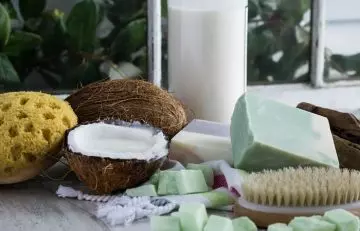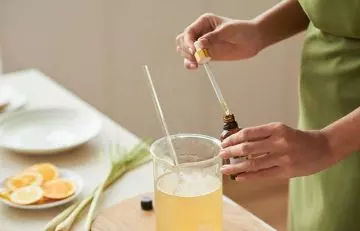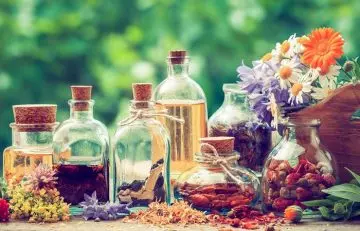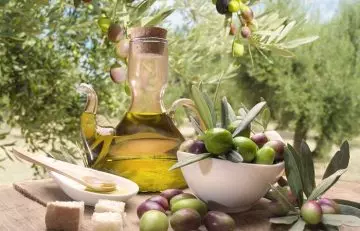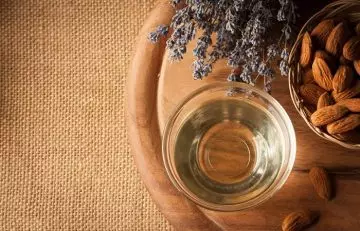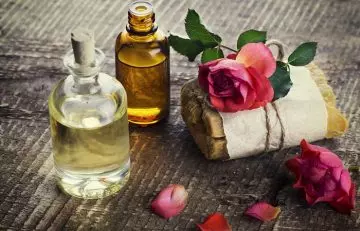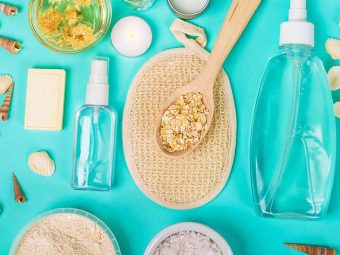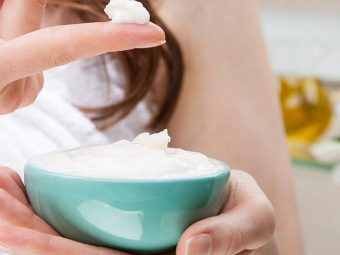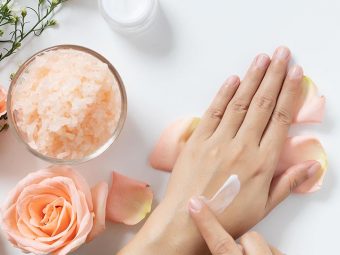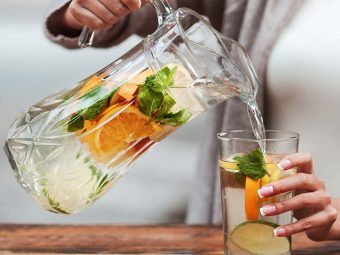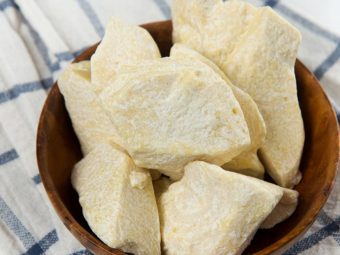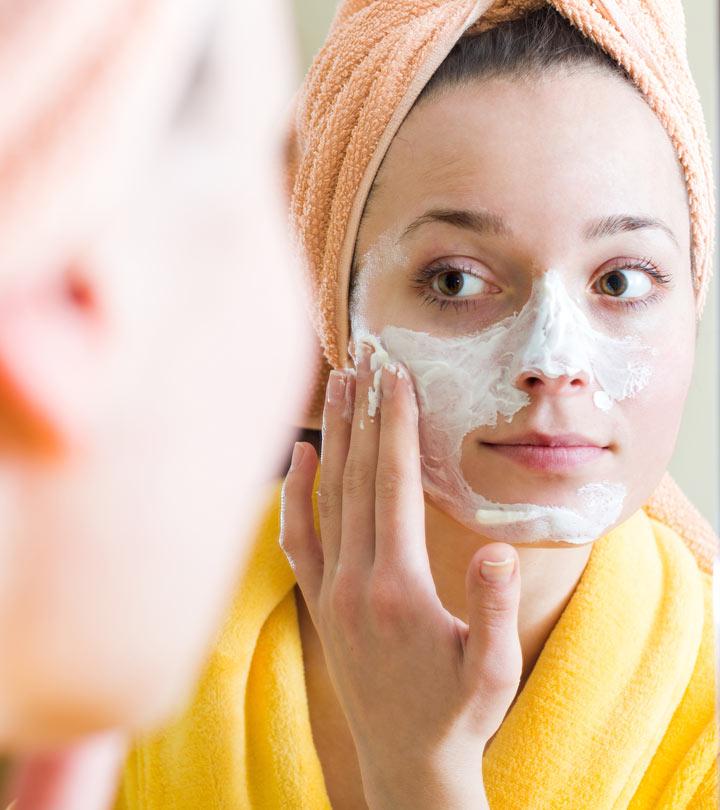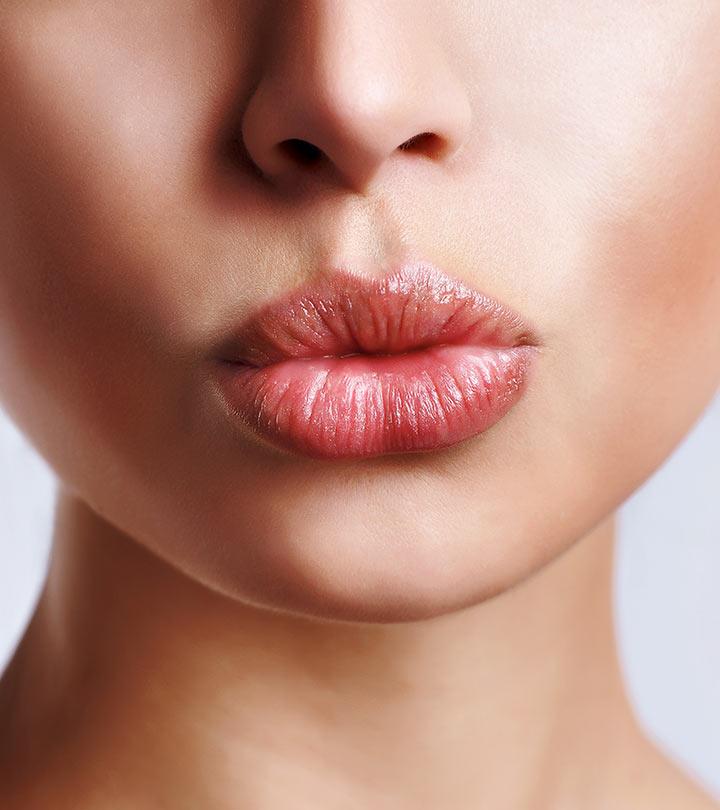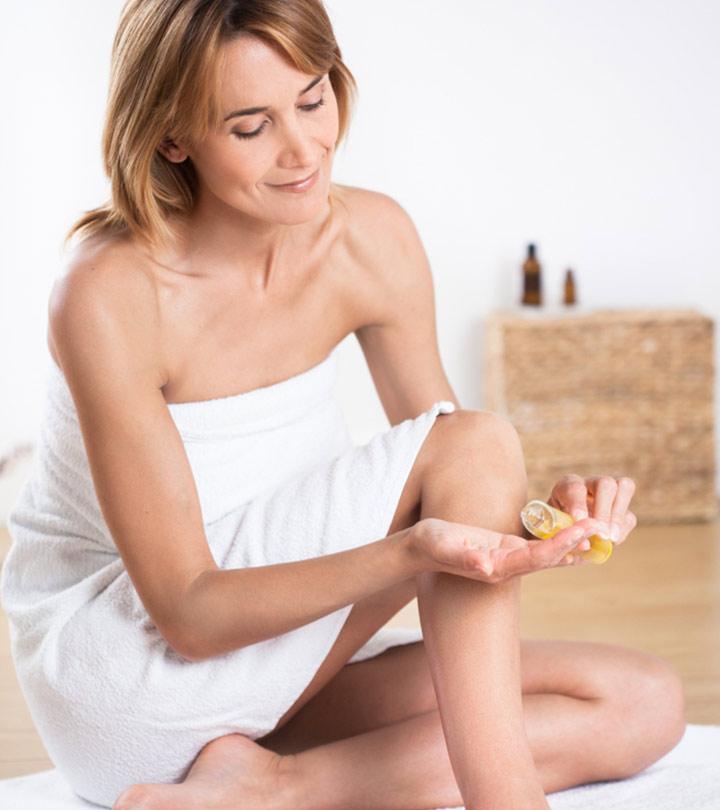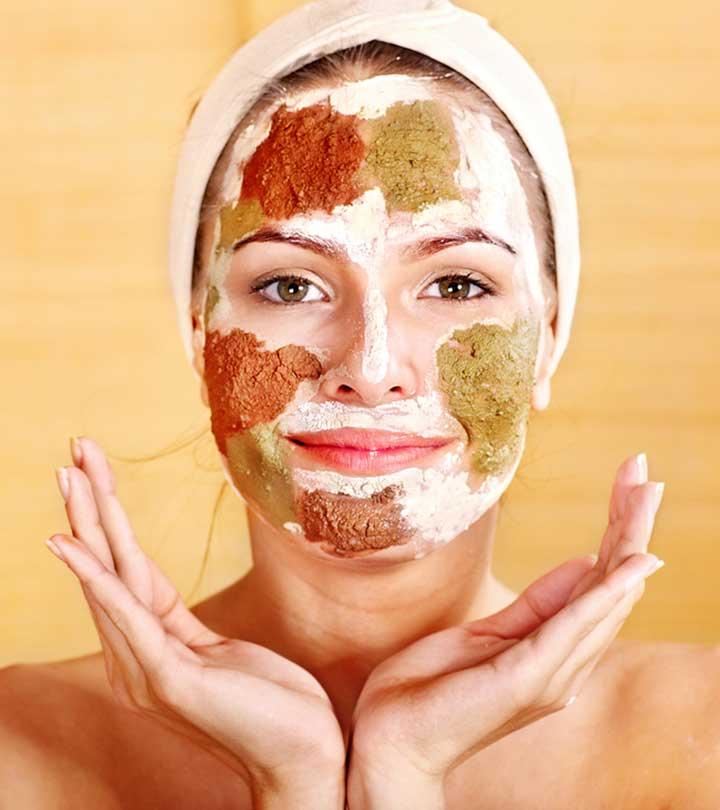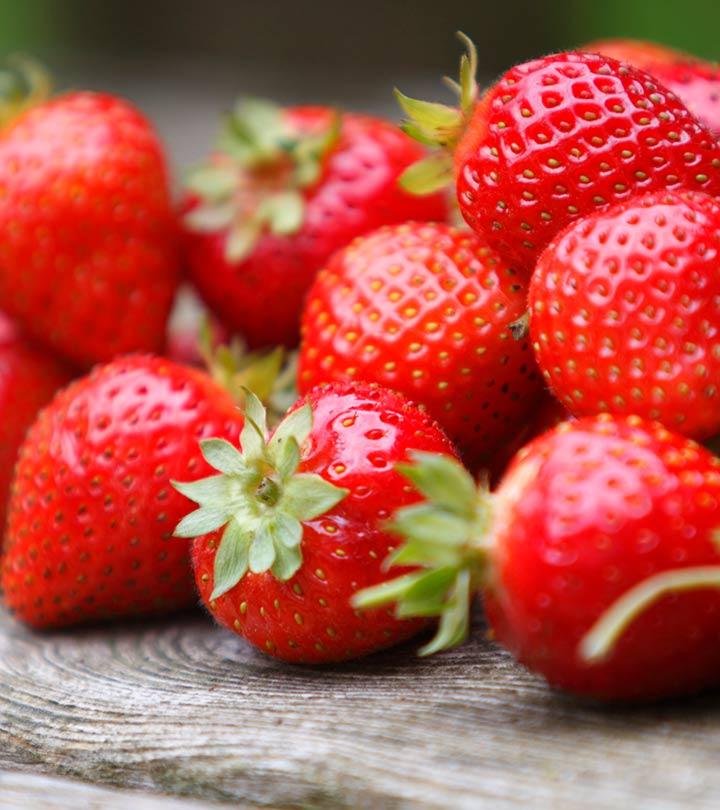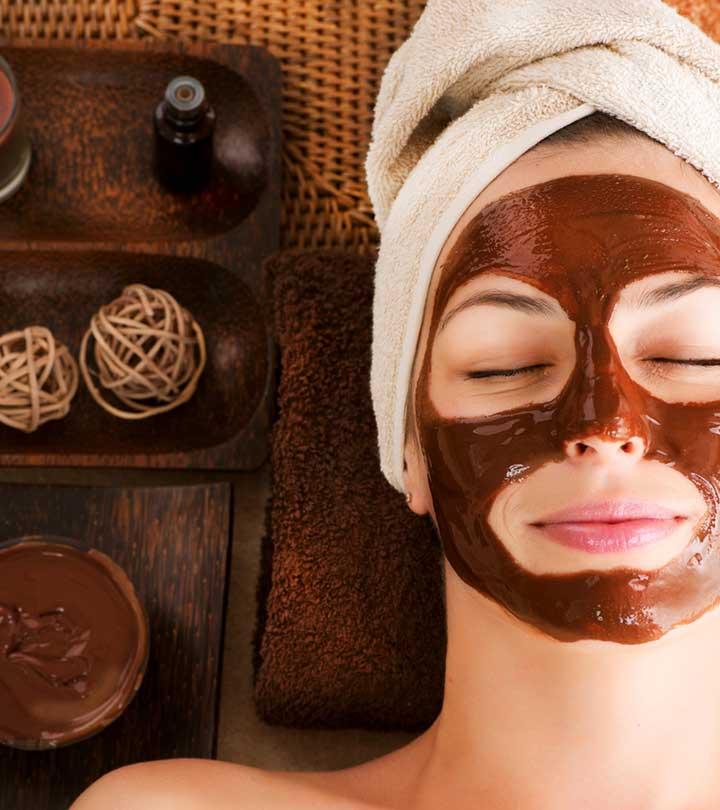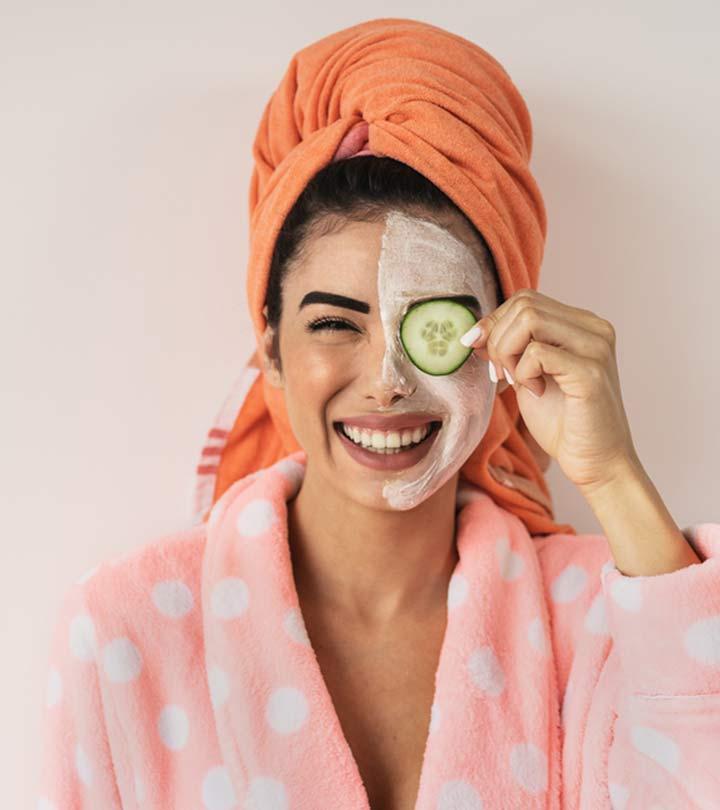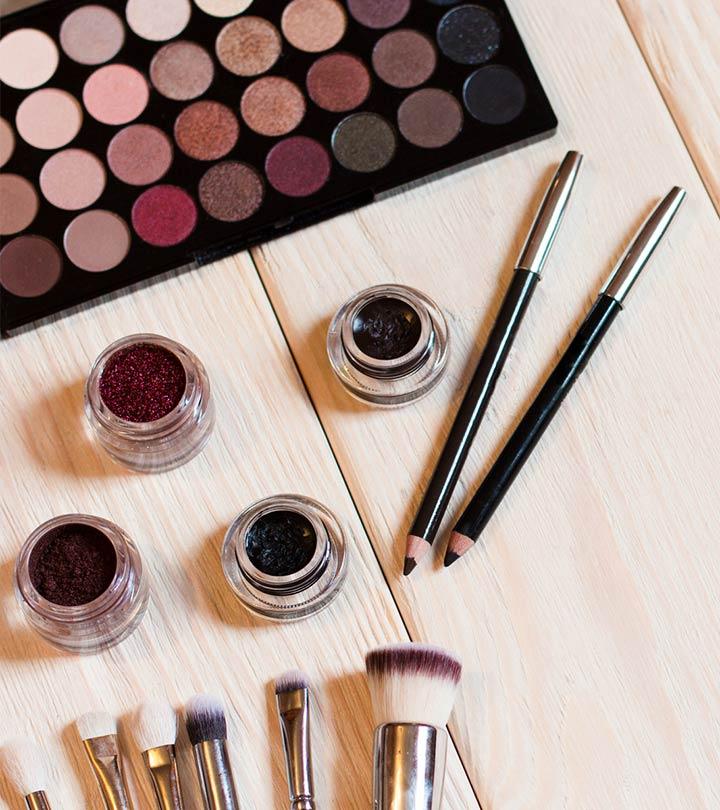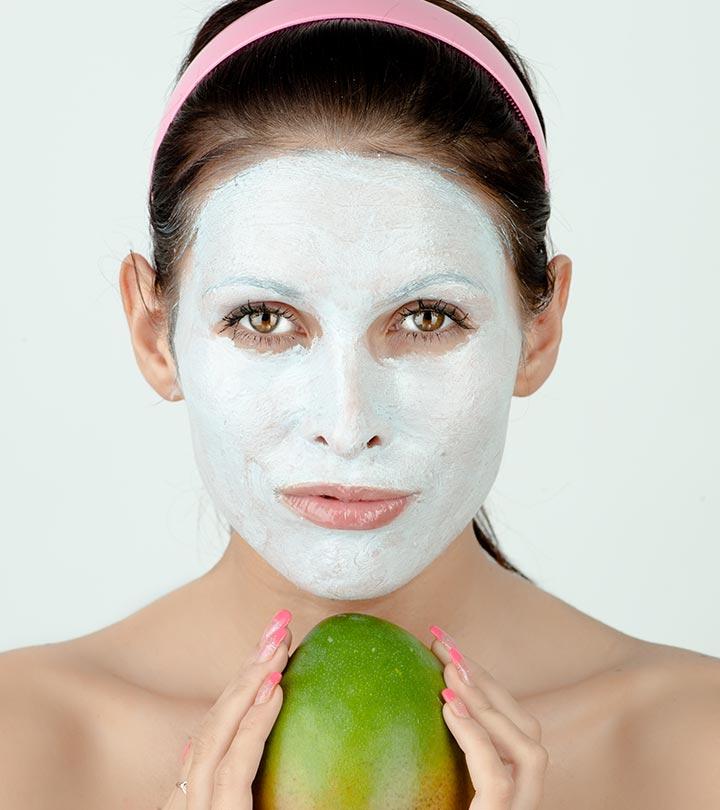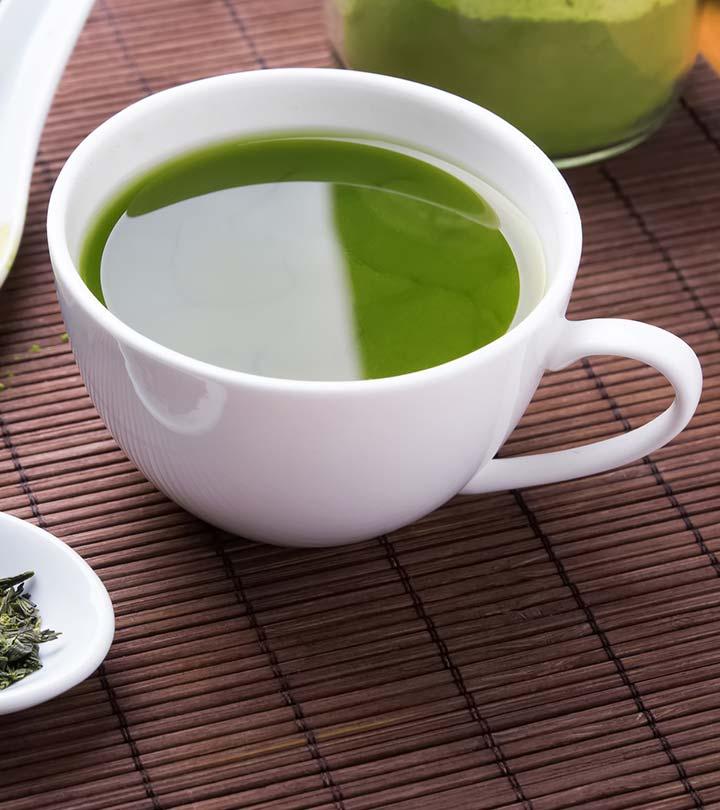12 Simple Homemade Body Wash Recipes
Customize your DIY body wash with the ingredients you love, the way you want.

Image: Shutterstock
Choosing a perfect body wash is more than just tossing between fragrances. While we cannot deny the power of sensory beauty, the chemicals in the body washes do more harm than good. Solution? Switch to homemade body washes.
The best part about homemade body washes is that you can customize the recipe. You can make them more moisturizing with organic ingredients and opt for fragrance-free versions or play with different aromatics. Moreover, they are completely natural and safe for your skin. Homemade body washes are easy to prepare, and the ingredients are easily available. Here, we have shared DIY homemade body wash recipes for all skin types. Scroll down and check them out.
In This Article
Ingredients For Making A Homemade Body Wash
1. Glycerin
This is a very common ingredient in most of the soaps and body washes available in the market. Glycerin (or glycerol) is a humectant that bonds with water to keep your skin moisturized and hydrated. Glycerin is excellent for treating dry skin conditions such as xerosisi XA condition characterized by extremely dry skin with small cracks or scales, mainly due to environmental factors and lack of hydration. and atopic dermatitisi XA chronic skin condition characterized by irritation, dryness, inflammation, and red rashes on the skin that may also flare up. (1). It nourishes your skin, heals it, and enhances its appearance.
2. Coconut Milk
Coconut milk possesses antibacterial properties and is beneficial for oily and acne-prone skin. It does not clog your pores and gently removes dead skin cells. It contains high levels of vitamin E, which is crucial for fighting against aging (2). It contains high levels of vitamin A, which is crucial for maintaining your skin’s elasticity. It also contains copper that reduces age spots and prevents the appearance of fine lines and wrinkles. It is incredibly soothing for sunburnt skin due to its anti-inflammatory properties.
3. Essential Oils
These oils are cold pressed and available in their purest form that contains the essence of the herb/ingredient they are prepared from. Essential oils are extremely beneficial for your skin. They not only reduce inflammation but also keep your skin healthy by getting rid of harmful free radicals. Some essential oils also have anti-aging benefits. Some essential oils also have anti-cancer benefits and help treat skin infections (3). Rosemary oil, for instance, has antioxidant properties, which may protect the skin from UV radiation, and provide anti-aging benefits (4).
4. Honey
Honey is a natural moisturizer that keeps your skin nourished without drying it out. It is an antibacterial agent that reduces inflammation and maintains the elasticity of your skin (5).. This is why honey is perfect for dry, damaged, and itchy skin. It also has humectant, emollienti XAn agent or substance that hydrates the skin by forming a protective barrier and trapping moisture in the skin. , and soothing properties and helps prevent wrinkles, keeping the skin youthful (6).
5. Olive Oil
Olive oil is often used in body washes and soaps for extra moisturization. This oil has anti-inflammatory properties that nourishes your skin and reduces oxidative damage (7). If your body wash has olive oil, you do not have to apply moisturizer after taking a shower.
6. Castile Soap
You will need liquid castile soap for making the body wash froth without adding any other chemical foaming agent. You can use unscented or scented castile soap. If you are using scented castile soap, skip using essential oils.
7. Almond Oil
Almond oil not only nourishes your skin but also makes it glow. Its moisturizing properties loosen the dead skin cells and make it easier for you to clean your skin. Historically, it had been used to heal dry skin conditions like eczema and psoriasisi XA chronic skin condition that causes itchy skin, rashes, and scaly patches due to systemic inflammation. (8). The oil can be a good alternative to hydrate your skin because of its high levels of fatty acids (9).
8. Castor Oil
Castor oil contains essential omega-6 and omega-9 fatty acids, along with vitamin E and other proteins. All these components are good for your skin. This oil is known for its antibacterial properties and restores the moisture content of your skin.
9. Shea Butter
The moisturizing property of shea butter is unparalleled, but it is also known for its healing properties. Shea butter soothes skin allergies, sunburn, and rashes and promotes wound healing (7). It acts as an emollient and moisturizer and provides sun protection. Topical use of this ingredient has shown anti-ageing and anti-inflammatory properties on animals (10).
 Did You Know?
Did You Know?Now that you know all about the ingredients and what each of them does to your skin, let’s check out the homemade natural body wash recipes.
12 Homemade Natural Body Wash Recipes
- Homemade Body Wash With Castile Soap And Glycerin
- Homemade Body Wash With Coconut Milk
- Homemade Body Wash With Essential Oils
- Homemade Body Wash With Honey
- Homemade Body Wash With Olive Oil
- Homemade Body Wash With a Soap Bar
- Homemade Body Wash For Dry Skin
- Homemade Body Wash For Oily Skin
- Homemade Body Wash For Sensitive Skin
- Homemade Body Wash Without Castile Soap
- Homemade Body Wash With Aloe Vera
- Homemade Body Wash With Oatmeal
1. Homemade Body Wash With Castile Soap And Glycerin
Ingredients
- ½ cup liquid castile soap
- 2 tablespoons fractionated coconut oil
- 2 tablespoons glycerin
- 1 tablespoon olive oil
- 1 tablespoon vitamin E oil
- 20-30 drops citrus essential oil (you can use lemon, orange, or grapefruit oil)
How To Make
- Pour all the ingredients into a bowl and mix well.
- Transfer the mixture to a bottle with a pump dispenser.
- Shake it well before using.
Shelf Life
Essential oils and olive oil usually have a shelf life of 2 years. However, glycerin has a shelf life of about a year. So, it’s better to use your body wash within a year.
2. Homemade Body Wash With Coconut Milk
Ingredients
- ½ cup unsweetened coconut milk
- ⅔ cup unscented liquid castile soap
- 3 teaspoons jojoba oil
- 2 teaspoons glycerin
- 1 teaspoon raw honey
- 5 drops tea tree essential oil (optional)
- 5 drops lavender essential oil (optional)
How To Make
- Pour coconut milk into a flip bottle and then add the unscented liquid castile soap to it.
- Add honey, glycerin, jojoba oil, and essential oils.
- Close the lid and shake it to mix the ingredients well.
- Pour on a bath sponge and use.
Shelf Life
Jojoba oil hardly ever goes rancid as it is not exactly an oil but the wax extracted from the jojoba tree. It has an indefinite shelf life. However, glycerin and essential oils have a shelf life of 1-2 years. So, try to use this body wash within a year.
However, observing her experience with a similar homemade body wash, Becca, a blogger, notes,“It took me a bit of trial and error to find a homemade body wash I love. I used to combine equal parts coconut milk and castile soap for a body wash, but I didn’t love the feel of that combination (i).” She felt that this combination didn’t create much of a lather and wasn’t very moisturizing.
3. Homemade Body Wash With Essential Oils
Ingredients
- 1½ cups liquid castile soap
- 4 teaspoons glycerin
- 10 drops peppermint essential oil
- 10 drops ylang-ylang essential oil
How To Make
- Pour the castile soap into a bottle and then add the glycerin.
- Add the essential oils and shake well.
Note: You can use any essential oils of your choice for making this body wash. Some oil combinations that you can use are lavender, rose, melissa, jasmine, geranium, and cucumber seed.
Shelf Life
This body wash has a shelf life of 1 year.
4. Homemade Body Wash With Honey
Ingredients
- ½ cup liquid castile soap
- ½ cup raw honey
- 2 tablespoons castor oil
- 2 tablespoons olive oil
- 10 drops of an essential oil of your choice
How To Make
- Pour the castile soap into a bottle.
- Add the honey, followed by castor and olive oils and then the essential oil.
- Shake well before use.
Shelf Life
When stored in a cool and dry place, castor and olive oils can last for 1-2 years. This body wash should be used within a year.
5. Homemade Body Wash With Olive Oil
Ingredients
- ⅓ cup castile soap
- ⅓ cup raw honey
- ⅓ cup olive oil
- 30-60 drops essential oils (use a blend of oils such as sweet orange, vanilla, and lavender)
How To Make
- Pour all the ingredients into a bottle.
- Make sure you add the essential oils at the end.
- Shake well, and it’s ready to use.
Shelf Life
The homemade olive oil body wash has a shelf life of about a year.
6. Homemade Body Wash With a Soap Bar
Ingredients
- 6 cups distilled water
- 3 soap bars of your choice.
How To Make
- Boil the water in a stainless steel vessel.
- Microwave the soap bars for about 30 seconds or until they melt.
- Pour the soap into the water immediately. Keep stirring while you add the soap.
- Make sure every piece of soap has melted, and the water and soap have combined thoroughly.
- Transfer the mixture to a glass bottle and let it cool down. It will continue to thicken as it cools down (for about 24 hours). If it is too thick, add some water.
Shelf Life
Use this body wash within a year.
7. Homemade Body Wash For Dry Skin
//
//
Ingredients
- 2 cups unscented castile soap
- 3 tablespoons almond oil (you can use sweet almond oil)
- 1 tablespoon lime juice
- 1 cup rose water
- 15-20 drops lavender essential oil (you can even use citrus essential oils if you want)
How To Make
- Pour all the ingredients into a bottle and mix well.
- For mixing, do not use a stirrer. Just shake the bottle.
Shelf Life
When stored in a cool and dry place, lime juice lasts for 1-2 years. Rose water can last for up to 2 weeks (if prepared at home), and if it is store-bought, check the expiry date on the bottle. Sweet almond oil has a shelf life of 6-12 months. So, try to use this body wash within 2 weeks (if you are using homemade rose water). Otherwise, finish it off within 6 months.
8. Homemade Body Wash For Oily Skin
Ingredients
- 6 cups distilled water
- ½ cup castile soap
- 2 tablespoons neem leaf extract (boil the leaves and then extract the water)
- ½ cup coconut oil
- 1 tablespoon bentonite clay
- 15 drops lavender essential oil
How To Make
- Pour the liquid soap in a bottle and add the other ingredients.
- Shake well, and it’s ready to use.
Shelf Life
Use the body wash within 6 months to 1 year.
9. Homemade Body Wash For Sensitive Skin
Ingredients
- ½ cup shea butter
- ½ cup almond oil
- 1 cup liquid castile soap
- 10 drops rose essential oil
How To Make
- Microwave the shea butter.
- Mix the almond oil into it.
- Add the castile soap and the rose essential oil.
- Give it a gentle swirl and transfer to a bottle.
- Shake well to mix properly.
Shelf Life
This body wash has a shelf life of 6 months to a year.
 Quick Tip
Quick Tip10. Homemade Body Wash Without Castile Soap
Ingredients
- 1/2 cup distilled water
- 1 tablespoon glycerin
- 1 teaspoon vitamin E oil
- ½ teaspoon guar gum
- 5 drops lavender oil
- 5 drops tea tree oil
- ¼ cup African black soap
How To Make
- Boil the distilled water.
- Grate the African soap (if it is solid) and add it to the water. Let it dissolve.
- Add the glycerin and the other ingredients.
- Transfer the mixture to a bottle and shake.
Shelf Life
The shelf life of this body wash is about a year.
11. Homemade Body Wash With Aloe Vera
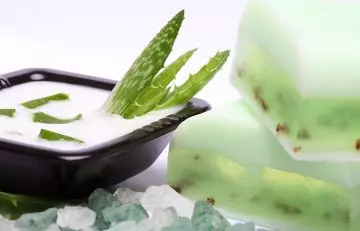
Ingredients
- ½ cup aloe vera gel
- 1 cup liquid castile soap
- ½ cup coconut oil
- 10 drops of rosemary essential oil
How To Make
- Mix the aloe vera gel with coconut oil.
- Add the castile soap along with rosemary essential oil.
- Mix everything well.
- Transfer the concoction to a jar and shake well.
Shelf Life
This body wash lasts up to 6 to 8 months.
12. Homemade Body Wash With Oatmeal
Ingredients
- ½ cup rolled oats
- 4 cups water
- 1 cup liquid castile soap
- 10 drops of lavender essential oil
- 1 tablespoon jojoba oil
How To Make
- Boil the oatmeal.
- Leave it to rest for 1 hour.
- Strain the water to remove the oatmeal.
- Add the lavender oil, jojoba oil, and castile soap to the water.
- Transfer to a jar and shake well.
Shelf Life
This body wash lasts up to 3 to 6 months.
Ingredients: Most Popular Ingredients Used In Homemade Body Wash Recipes
There is no one DIY recipe for a body wash— different ingredients come together in various combinations and proportions to create a variety of body washes. If you want to explore your creative potential and make yourself a whole bunch of homemade body cleansers, you need to be aware of the most popular ingredients that go in. So, check out this infographic with a brief guide to the most common and beneficial ingredients used in DIY body wash recipes. Illustration: StyleCraze Design Team
Commercial body washes contain harsh chemicals that may harm your body. If you are looking for natural alternatives, it is good to switch to homemade body washes. They are cost-effective, eco-friendly, environmentally sustainable, easy to prepare, and customizable as per your skin type. To make these body washes, you can use the ingredients available in your pantries, such as almond oil, shea butter, honey, glycerin, or olive oil. These body washes work well for gentle skin cleansing and are a better alternative to chemically-riddled shower gels. These body washes will keep your skin moisturized, prevent wrinkles, and protect your skin from oxidative damage. If you experience an adverse reaction, consult your doctor.
Frequently Asked Questions
Are handmade soaps worth it?
Yes. Handmade soaps are devoid of any chemicals and are pure. They cleanse and hydrate your skin without stripping its healthy oils. You can customize the ingredients and try different recipes according to your skin needs.
How do you thicken homemade body wash?
To thicken homemade body wash, add 2% salt water solution to the base. Adding more than that may make the body wash runny.
What is a substitute for castile soap?
You may use goat’s milk soap, coconut soap, and marseille soap instead of castile soap.
Key Takeaways
- Coconut milk, glycerin, and olive oil are a few common ingredients used in making a homemade body wash.
- Add honey to make your homemade body wash more nourishing and rejuvenating.
- A homemade body wash made of castile soap, lavender essential oil, and almond oil is perfect for moisturizing dry and damaged skin.
- Individuals with sensitive skin can use a homemade body wash made of shea butter, castile soap, and rose essential oil.

Image: Stable Diffusion/StyleCraze Design Team
Learn how to create a luxurious natural body wash using the goodness of honey and coconut. Pamper your skin with this DIY recipe for a refreshing and nourishing bathing experience.
Personal Experience: Source
StyleCraze's articles are interwoven with authentic personal narratives that provide depth and resonance to our content. Below are the sources of the personal accounts referenced in this article.
(i) Natural Body Wash With 3 Ingredientshttps://lifesapearl.com/natural-body-wash-with-3-ingredients/
References
Articles on StyleCraze are backed by verified information from peer-reviewed and academic research papers, reputed organizations, research institutions, and medical associations to ensure accuracy and relevance. Read our editorial policy to learn more.
- Glycerol and the skin: holistic approach to its origin and functions
https://pubmed.ncbi.nlm.nih.gov/18510666/ - Plant-based milk alternatives an emerging segment of functional beverages: a review
https://www.ncbi.nlm.nih.gov/labs/pmc/articles/PMC5069255/ - Essential Oils New Perspectives in Human Health and Wellness
https://www.ncbi.nlm.nih.gov/labs/pmc/articles/PMC4090492/ - Rosmarinus officinalis and Skin: Antioxidant Activity and Possible Therapeutical Role in Cutaneous Diseases
https://www.ncbi.nlm.nih.gov/pmc/articles/PMC10045493/ - Antibacterial Potency of Honey
https://www.ncbi.nlm.nih.gov/labs/pmc/articles/PMC6589292/ - Honey in dermatology and skin care: a review
https://pubmed.ncbi.nlm.nih.gov/24305429/ - Anti-Inflammatory and Skin Barrier Repair Effects of Topical Application of Some Plant Oils
https://www.ncbi.nlm.nih.gov/labs/pmc/articles/PMC5796020/ - The uses and properties of almond oil
https://pubmed.ncbi.nlm.nih.gov/20129403/ - Fatty acid composition and anticancer activity in colon carcinoma cell lines of Prunus dulcis seed oil
https://www.ncbi.nlm.nih.gov/labs/pmc/articles/PMC6130748/ - Effects of Topical and Dietary Use of Shea Butter on Animals
https://www.researchgate.net/publication/277021242_Effects_of_Topical_and_Dietary_Use_of_Shea_Butter_on_Animals





